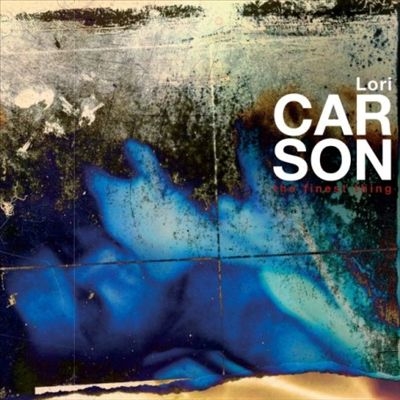|
フォーマット |
CD |
|---|---|
|
構成数 |
1 |
|
国内/輸入 |
輸入 |
|
パッケージ仕様 |
- |
|
発売日 |
2006年01月30日 |
|---|---|
|
規格品番 |
TPLP473CD |
|
レーベル |
|
|
SKU |
5016958065225 |
構成数 | 1枚
合計収録時間 | 00:00:00
The Finest Thing is Lori Carson's first new recording in three years. This marks the first time Carson has written an album as a series of connected songs, or, as she calls them, "meditations." One can sense the interior yet open focuses of the music on the sleeve by conceptual artist Russell Mills. Blues and earth tones hover in a faded landscape underscored by lovers kissing in repose on the front cover, with a solitary figure reclining in the sheets on the back. These sonic, song-form meditations are imagistic, full of limpid, languid recollections from life that are etched deeply into emotional memory, but are reportable in only the most poetic of observational terms because of the limitations of words. Carson uses prominent acoustic and spare electric guitars, shimmering keyboards, a muted trumpet, and layers of voices (her own and those of Ayako Hirakata). Some of these voices impart words, some wordlessly impart the pervasive sense of contemplative traveling through love, memory, people, places, things, events, landmarks -- both spiritual and physical -- and time itself as an elemental and subjective construct in space that breathes, opens, dissolves, and re-emerges as transformation. On the title track, Carson sketches the feeling of being washed clean by the lover's presence: "When I saw my love, not long ago/It was like breathing air/After being without it, it was like breathing/After being so long without it." Scott Tweedie's reedy, rounded trumpet enters amid the piano and guitars, winding its way through the next few lines: "Quick as you wish you could make it last/It goes that fast/You can't stop it, you can't even slow it down. Being in his arms is the finest thing/Being in his arms, in his company/was the finest thing." As the next verse flutters down into the softness, the notion of passage becomes more pronounced: "You hold on to summer, how quickly it goes/The sweet and salty air, everything about it/The sweet and salty air, you love everything about it/Quick as you wish you could make it last, it goes that fast...." As the instruments begin to commingle and entwine in the center of the mix, Carson's small truth becomes a looming one: that love, like summer, passes and what's left is the memory -- physical, emotional, spiritual -- of the "finest thing." This could be a devastating truth if it weren't so tender and willing, offered without bitterness or regret. The next two pieces, "She Can't Decide," and the beginning of "Long Walk" become jump-off points for the rest of the set. These pieces offer deeper, moodier reflections but are carried by voices offering impressions rather than words, they croon "la la la" with grace in the center of a lush yet spare mix that brings the listener down into the silence where the heart speaks in untranslatable syllables. "Hold Onto the Sun," is rootsier, simpler, held fast by guitars and keyboards, in staccato phrasing, a notion of being in flux without giving in to the temptation to escape. This is a testament of brokenness that desires to hang on to what is fleeting: wholeness, safety, and certainty. Rather than delving into the harrowing feelings themselves, it's an admonition and affirmation of acceptance and the willingness to embrace what comes next even if its face cannot yet be glimpsed. As two longish pieces of hovering voices slip through the skeletal instrumentation on "Glimmer" and "Grey World," the listener embraces the solitude of formlessness and waiting before tentatively emerging on the beautifully vulnerable "Coney Island Ride," accompanied by a 12-string and ghostly sounds that could be the traces of a past lived through, a present not quite revealed, or a foreseeable future whispering intentions difficult to discern. What emerges on the return of "Long Walk" is an unspecific, nearly formless presence that moves up ghost-like from the well of silence and into the heart of the listener. This is subtle yet gorgeous work by an artist who has continually c
-
1.[CD]
-
1.Finest Thing
-
2.She Can't Decide
-
3.Long Walk
-
4.Hold On To The Sun
-
5.Glimmer
-
6.Grey World
-
7.Coney Island Ride
-
8.Long Walk
-
欲しい物リストに追加

コレクションに追加
サマリー/統計情報
 セブン-イレブン受け取り
セブン-イレブン受け取り
お早めのご注文で発売日前日にお届けいたします
山口県・四国・九州・沖縄県
フラゲ注文受付期間は地域によって異なります。
お住まいの地域をご確認ください。

発売日前日
にお届けします発売日当日
にお届けしますフラゲ注文受付期間は地域によって異なります。
お住まいの地域をご確認ください。

